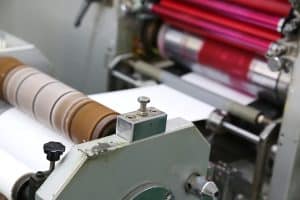Quantum Agriculture: AI-Powered Farming Revolution
Farming has come a long way since its humble beginnings thousands of years ago. From manual labor and simple tools to modern machinery and advanced techniques, the agriculture industry has continually evolved and adapted to meet the demands of a growing population. And now, with the emergence of quantum agriculture, this evolution is taking a revolutionary turn. Combining the power of quantum computing and artificial intelligence, this new form of farming is set to transform the industry in ways never imagined before. Let’s take a closer look at Quantum Agriculture: AI-Powered Farming Revolution and what it means for the future of farming.
The Rise of Quantum Agriculture
Quantum agriculture is the application of quantum computing and artificial intelligence to farming. By utilizing these cutting-edge technologies, it aims to optimize the production process and improve efficiency, yield, and sustainability in agriculture. This is achieved by analyzing vast amounts of data, including soil health, crop growth, weather patterns, and market trends, and using it to make data-driven decisions that will benefit both farmers and consumers.
Quantum Computing in Farming
Quantum computing, a technology that has been rapidly advancing in recent years, is at the heart of quantum agriculture. Unlike traditional computers that use bits to store and process information, quantum computers use quantum bits or qubits. This allows them to perform calculations and process vast amounts of data at a much faster rate, making them ideal for analyzing the complex and interconnected factors that affect farming.
With the help of quantum computing, farmers can analyze and predict plant growth, soil health, and climate changes with much greater accuracy and precision. This enables them to make changes to their farming practices in real-time, ensuring optimal conditions for their crops and maximizing their yield.
Artificial Intelligence in Farming
While quantum computing provides the processing power, artificial intelligence (AI) provides the intelligence in quantum agriculture. Through machine learning and deep learning algorithms, AI can analyze vast amounts of data and identify patterns and trends that humans may not be able to detect. This not only saves farmers time and effort but also allows them to make more informed decisions based on data-backed insights.
AI-powered farming also allows for precision agriculture, where farmers can target specific areas of their land that require attention, rather than treating the entire field. This eliminates waste, reduces costs, and improves sustainability by reducing the use of resources like water and fertilizers.
The Benefits of Quantum Agriculture
Quantum agriculture offers numerous benefits for both farmers and consumers. For farmers, it means higher yields, reduced costs, and increased efficiency. By using data to make decisions, farmers can optimize their farming practices and save time and resources. This also means more sustainable farming practices, as fewer resources are wasted in the process.
Consumers also benefit from quantum agriculture through increased access to fresh, nutritious, and affordable produce. With more efficient farming methods, supply can meet the increasing demand for food, and consumers can enjoy a greater variety of high-quality produce.
The Future of Farming
The potential of quantum agriculture is limitless. With advancements in technology and ongoing research, we are only scratching the surface of what is possible. From improving food security and sustainability to optimizing farming practices, this AI-powered farming revolution is set to shape the future of agriculture.
It’s clear that quantum agriculture has the potential to revolutionize the agriculture industry. By harnessing the power of quantum computing and artificial intelligence, farmers can improve efficiency and sustainability, while consumers can enjoy more accessible and high-quality produce. With continued development and adoption, we can look forward to a future where farming is smarter, more precise, and more sustainable than ever before.





